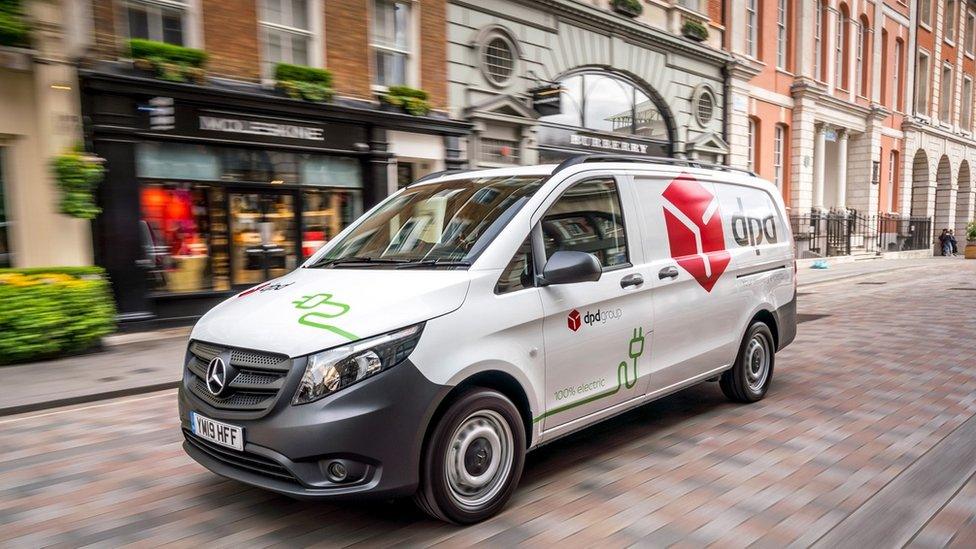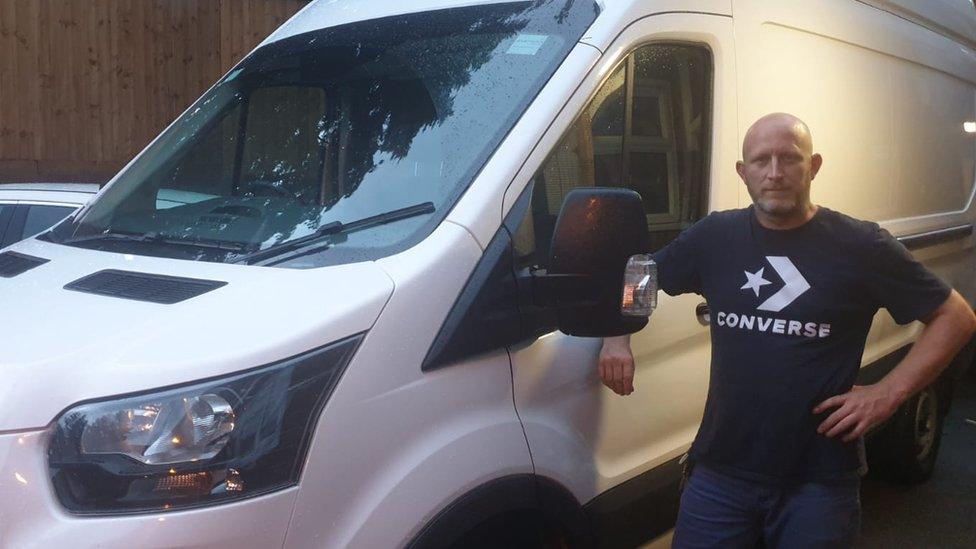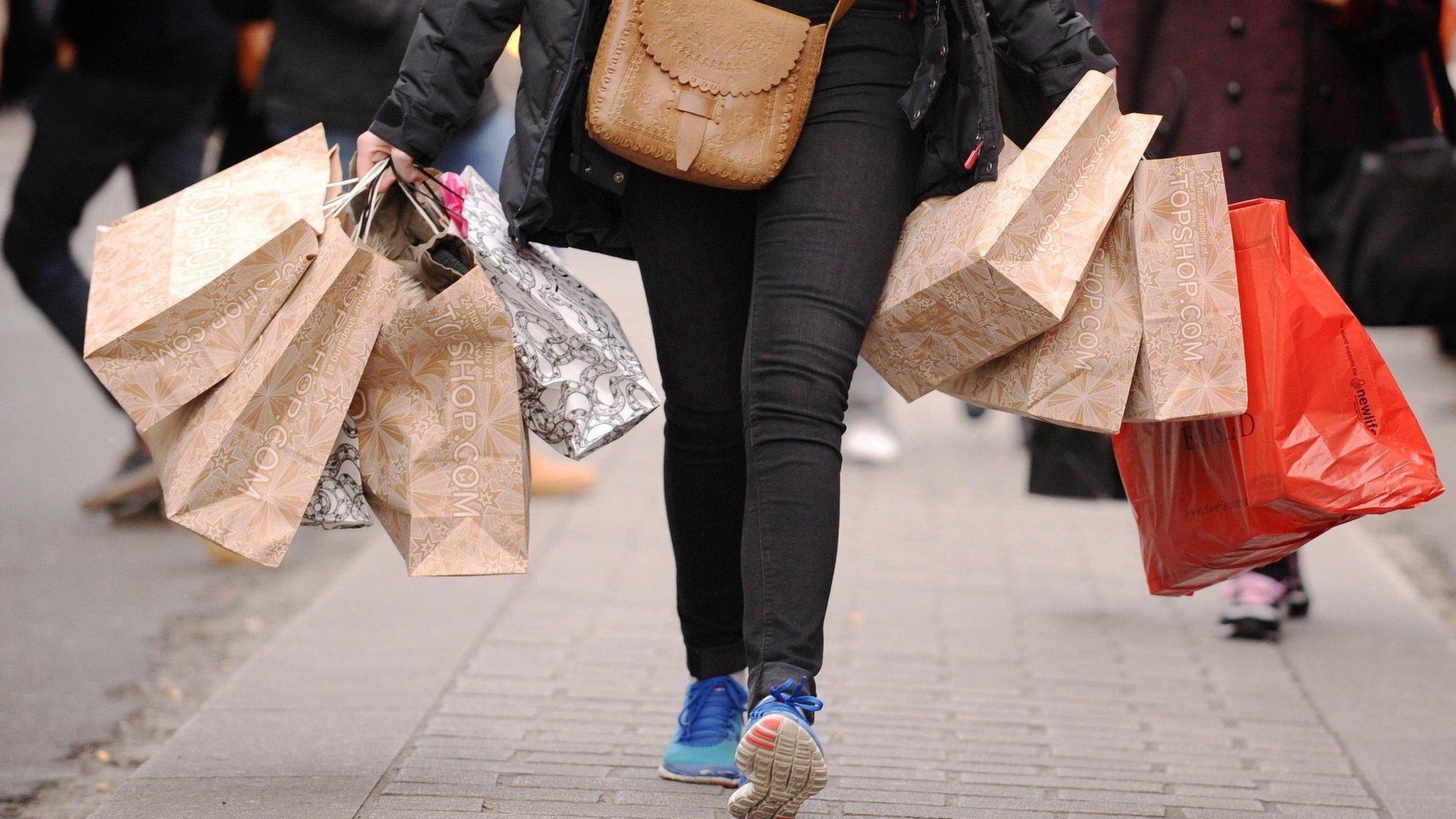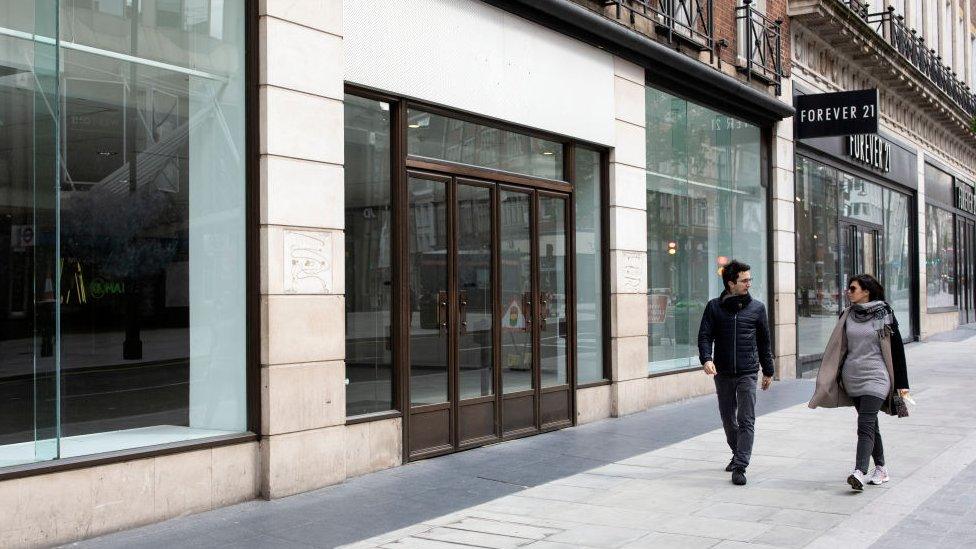DPD and B&Q owner to hire 7,500 as demand surges
- Published
- comments

DPD expects the boom in online shopping to continue
Delivery firm DPD and B&Q owner Kingfisher are hiring thousands more staff in the UK to help meet the surge in demand for goods bought online.
DPD plans to recruit 3,500 drivers and 2,500 support staff, including mechanics and parcel sorters.
Kingfisher says it will recruit 3,000 to 4,000 workers, about half of them in the UK.
With High Street shops closed recently because of the coronavirus, far more shoppers want goods delivered.
DPD boss Dwain McDonald described the lockdown period as the "biggest boom in online retailing" the UK had ever seen.
"Since this began, we have been handling parcel volumes more akin to the festive seasonal peak than this time of year," he said.
Kingfisher said online sales at B&Q and Screwfix, which it also owns, had more than tripled during April and May, the first two full months of lockdown.
Kingfisher chief executive Thierry Garnier said the firm's new recruits would be "temporary" during the summer, depending on what happened to demand after coronavirus measures were eased.
'New normal'
DPD said it expects strong growth to continue, even as shops reopen. It is investing £200m in vehicles, regional depots and handheld devices for drivers to record deliveries.
"I do think the High Street will bounce back from where things are now, but we have to base our modelling on our conversations with retailers and their projections," said Mr McDonald.
"It looks like there will remain a much greater reliance on e-commerce in the future - that's going to be our 'new normal'."
The lockdown brought many people to online shopping for the first time, according to Helen Norman, editor of the industry publication Postal and Parcel Technology International.
"A lot of people have just started shopping online during the pandemic. People are experiencing it for the first time and they're going to stick with it because it's easy," she said.


Steve Martin, 39, is a delivery driver working in Enfield, North London. He says the workload has increased dramatically during the coronavirus lockdown.
"Before lockdown, I used to deliver 200 parcels a day. Now it can be up to 300 parcels," he said.
"Everyone's got a step metre on their phone. Before lockdown I used to do 12,000-to-14,000 steps a day. In lockdown I managed to get up to 27,000 steps a day."
Steve says the company he works for paid drivers an extra £18 a day at the start of lockdown, to cover the extra workload. Now his pay has returned to the pre-crisis rate, but "the volume of parcels and deliveries are still up," he said.

Management consultants McKinsey say parcel deliveries to consumers shot up 40% during lockdown. The firm predicts the level of online orders will decrease as countries reopen High Street stores, but there will be 20% more online shopping deliveries this year than in 2019.
"We expect some of the online surge for the retail sector to stick but not at the levels seen at the start of the lockdown," said Florian Neuhaus, a McKinsey partner.
DPD isn't the only delivery firm expanding rapidly to cope with the recent surge in demand.
1.3 billion parcels
Ideal Direct Recruitment is an Essex-based firm that connects mostly self-employed drivers with the large logistics firms that Amazon and other retailers use for deliveries.
General manager John Carter said demand had increased four-fold during the coronavirus crisis.
"There's been a massive increase in manpower needed since Covid. We have supplied logistics companies 100 people a week for interviews during the lockdown. Before, we were supplying 25 people a week," he said.
DPD's growth is a boon for its owner, the French state-owned postal company, La Poste. The La Poste Group is now the second largest express parcel delivery firm in Europe, delivering 1.3 billion parcels in 2018.
But regular parcel deliveries to homes may not be sustainable long term, and could one day be replaced by deliveries to lockers instead, says Ms Norman.
"Many experts say delivering to lockers is the future, that's the only way delivery firms will be able to cope with volumes because it would cost them so much to deliver to every single house," she said. "Drivers can waste 15 minutes looking for a house."
- Published14 June 2020

- Published19 May 2020

- Published22 May 2020
